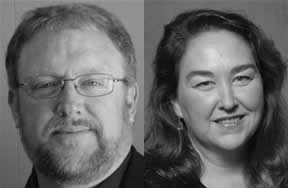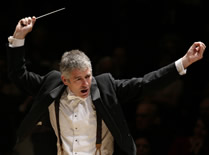Stephen Jaffe: Concerto for Cello and Orchestra, “Homage to the Breath,” “Cut Time,” and “Poetry of the Piedmont.” David Hardy, cello, Odense Symphony Orchestra, Paul Mann, conductor; Milagro Vargas, mezzo-soprano, & 21st Century Consort, Christopher Kendall, conductor; & North Carolina Symphony, Grant Llewellyn, conductor.. Bridge 9255 DDD @2008 Available directly from Bridge Records at http://www.bridgerecords.com/ for $14.99 postage paid or from the usual online services.
While listening to this very enjoyable and rewarding recording, one of our state’s old advertising campaigns — North Carolina as “The State of the Arts” — came to mind. The state has a large number of fine professional ensembles and a large number of accomplished composers. Many are based at our universities, as is Stephen Jaffe, who is Mary D.B.T. and James H. Semans Professor of Music at Duke University. Along with fellow composers Scott Lindroth and Anthony Kelley, he directs the concert series “Encounters: with Music of Our Time.”
This is the third recording of Jaffe’s music on the Bridge label. Jaffe has an admirable ability to select and set poetry to music. In the last decade, the composer has begun a series of concertos while continuing to create works for a wide-ranging ensemble. The excellent CD booklet with this release contains “Inside/Outside: Composing for Now,” an essay by Jaffe, as well as the composer’s notes for each selection.
“Cut Time” (2004) (2:08) is a brief, effective piece Jaffe composed as a thank-you to the National Symphony Orchestra and Leonard Slatkin for their premiere performances of his Cello Concerto. Hand-clapping and exuberance were intended to give the work a Gospel feel. “Poetry of the Piedmont” (2006) (6:38) was composed for the North Carolina Symphony as part of its “Postcards from North Carolina” project honoring the 75th anniversary of the orchestra’s founding in 1932. Recorded songs of the Black Capped Chickadee and the Carolina Chickadee are incorporated into the score along with fragments of the state’s song, “The Old North State,” and “Amazing Grace.” Both works are very easy on the ear and are well played by the North Carolina Symphony conducted by Grant Llewellyn; they were recorded in live performances in Meymandi Concert Hall. The audiences were totally quiet until the applause after the pieces had been played.
Compared to pianists and violinists, cellists face a dearth of really good concertos beyond the Dvorák, Elgar, and the two Haydns. Beethoven’s Triple Concerto and Brahms’ Double Concerto just hint at what might have been! Like those composers, Jaffe writes about his awareness of “the acoustical problem of projecting the cello with a sizeable orchestra.” Thankfully, he eschewed amplification! He opted to having the cello soloist play “with a shifting, rotating array of instruments, starting with prominent roles assigned to timpani, harp, mandolin, and steel drums in the opening music and radiating outward into the orchestra.” In addition, the score calls for winds and brass, keyboards, and three percussionists playing about thirty instruments!
The concerto is in four parts: a large first movement, a tiny second movement, a slow third movement, and a fast, pulsing conclusion. David Hardy plays the solo part brilliantly and with immaculate intonation, a wide palette of tonal color, and a broad dynamic range. His response to Jaffe’s very challenging score seems effortless. Conductor Paul Mann provides superb accompaniment with the Odense Symphony Orchestra.
Jaffe’s skill at setting words to music has impressed me most at concerts of his music. Typical of this is “Homage to the Breath: Instrumental and Vocal Meditations,” with a text by Thich Nhat Hanh (2001) (23:00). The score calls for ten players plus — for the third movement — a mezzo-soprano. The first movement, “Running Pulse,” is by turns exuberant and rhythmically driven. The second, “Ostinato elegiaco,” was written in memory of the composer’s mother, Elizabeth B. Jaffe. The music is wistful; Jaffe describes it “as if Schubert were playing the blues!” A rattle suggests his mother’s ragged breath near her passing. The text for the third movement is drawn from a Buddhist meditation exercise, treated by the composer as a sort of vocalise. Mezzo-soprano Milagro Vargas sings with a voice full and rich in tone and with fine care in delivering the text. Christopher Kendall and the 21st Century Consort conjure the composer’s unique metaphor in sound admirably.












